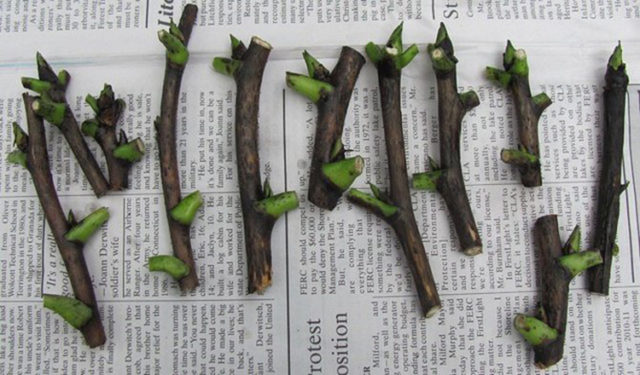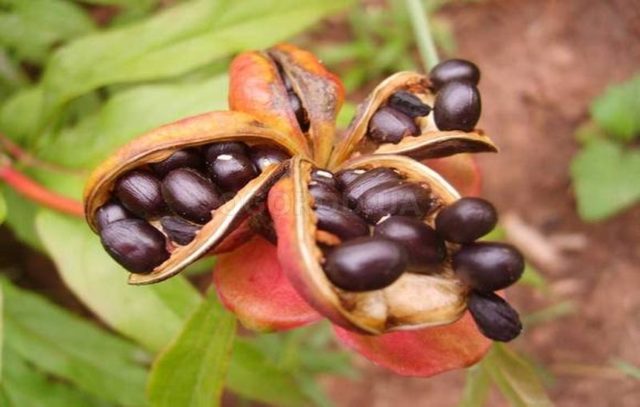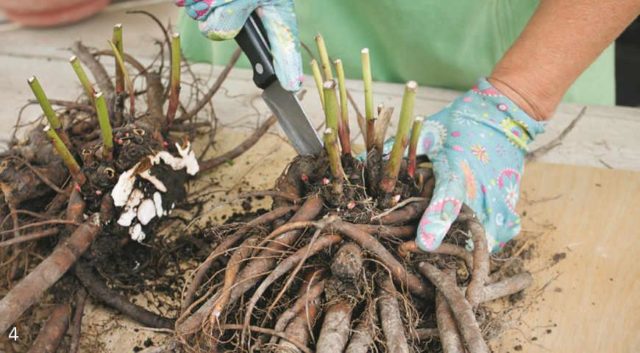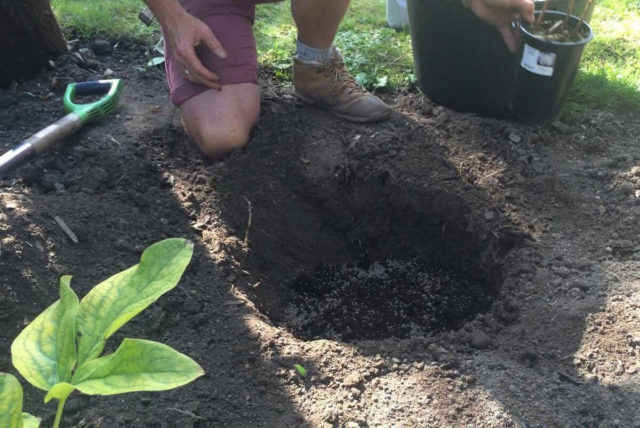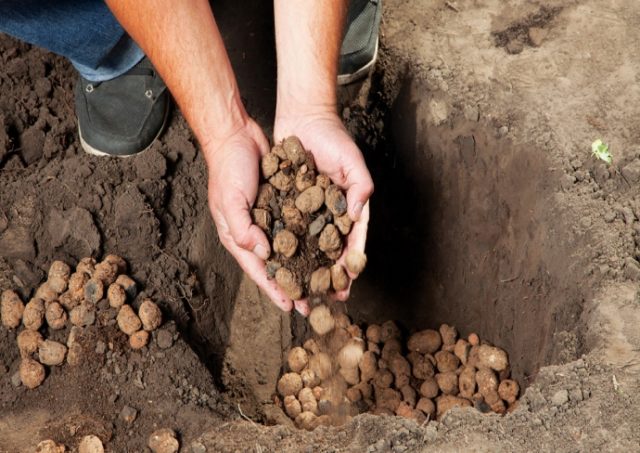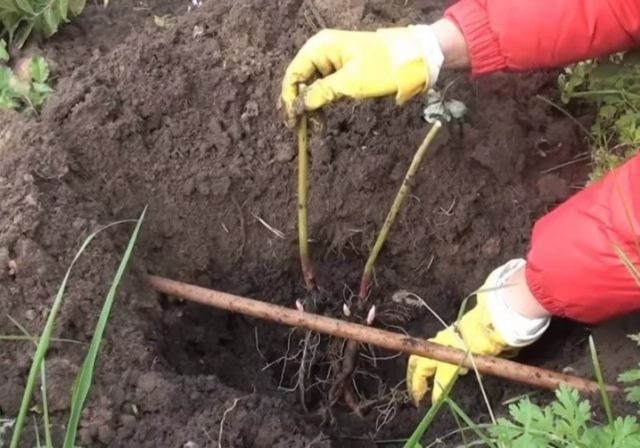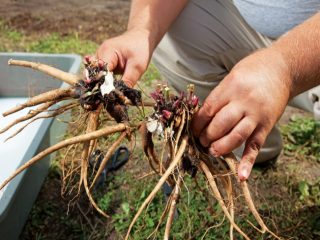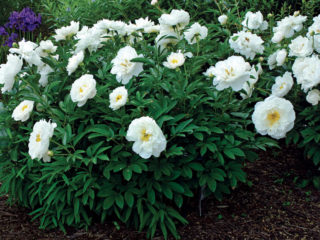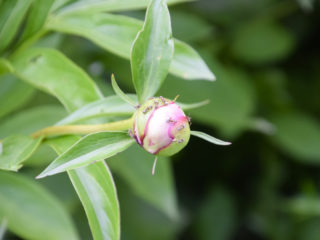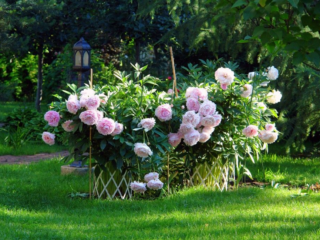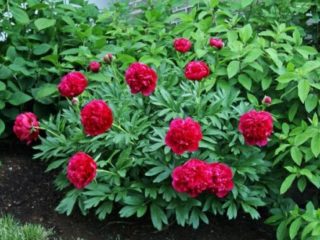Content
There are many beautiful garden flowers. Peony Alexander Fleming stands out not only for its extraordinary colors, but also for its large double bomb-shaped flower. The plant will become a real decoration of any area.
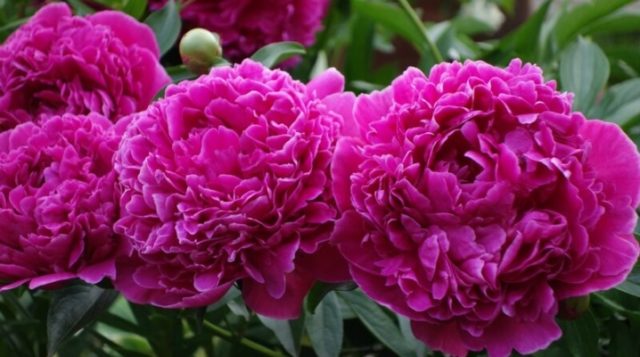
Peonies can be planted individually or can be used to create floral arrangements by combining them with other garden plants.
Description of peony Alexander Fleming
The flower was named after a scientist from Britain, who at one time gave the world an amazing substance that saved more than one life - penicillin.
The main stem of a varietal peony is about 80 cm high. It is powerful, thick, and can withstand green and flower mass. It bears a large number of shoots with dark green foliage, which is no less decorative than the pink or pink-purple flowers of the Alex Fleming peony. The trifoliate leaf blades have sharp ends.
The herbaceous peony with the sonorous name Alexander Fleming is a herbaceous perennial. Moreover, it adapts perfectly to different climatic conditions, so the flower can be grown in almost all regions of Russia. You just have to properly prepare the bushes for wintering.
Peony Alexander Fleming is a rather spreading plant, this should be taken into account when planting. For comfortable development, one bush will need at least 1 square meter. m.
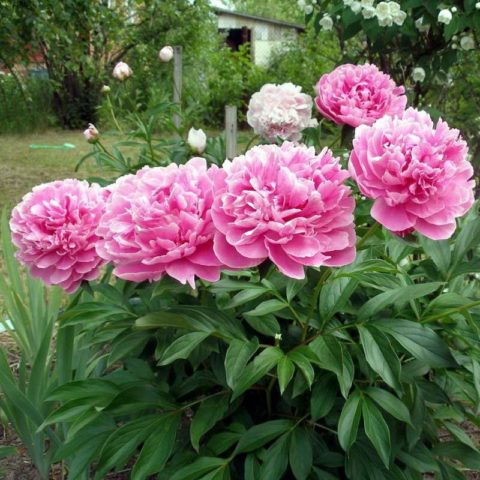
Peonies should be planted in sunny, draft-free areas.
Features of flowering
Herbaceous peony Alexander Fleming is a large-flowered plant with double rose-shaped buds. Flowering begins in late May or early June (depending on the growing region) and lasts a little more than two weeks.
Peony Alexander Fleming is a representative of milky-flowered herbaceous plants. It stands out against the background of other flowers with large fluffy inflorescences. There are so many pink-lilac petals that the core is invisible. Bud diameter is from 18 to 20 cm.

The edges of the petals have a well-defined corrugation, they are slightly lighter than the rest of the surface of the inflorescence
To get a lush flowering bush, you need:
- choose the right place for planting;
- take into account the distance between the peony and other plants;
- Avoid mistakes when caring for plantings.
After cutting, the flowers of Alexander Fleming peonies with a sweetish aroma, fruity or citrus notes last a long time without falling off. Amateur flower growers also liked this quality.
Application in design
Dr. Alexander Fleming's peonies are peaceful plants that can get along with many garden flowers.But choosing the right background so that the pink or pink-violet buds don’t get lost is not so easy.
Which neighbors to choose for the Alexander Fleming variety:
- Large peonies need proper support. It is best to plant tall and spreading bushes in the background of flower beds, for example, with lilies. The main thing is to choose the right varieties so that they have smaller leaves and buds.
- Alexander Fleming peonies can be planted with flowers that have small white buds. They will look great against the backdrop of large flowers.
- Excellent partners are irises, phlox, delphinium, cottonweed, sedum, phytolacca, foxglove. Looks good next to the variety squat mantle, primrose, aster and heuchera.
- Many gardeners grow peonies with pink bomb buds in combination with various geraniums. Compositae or fragrant varieties look especially majestic against the background. You just need to cut off the faded geranium buds in a timely manner, otherwise the harmony and decorativeness of the flower garden will be disrupted.
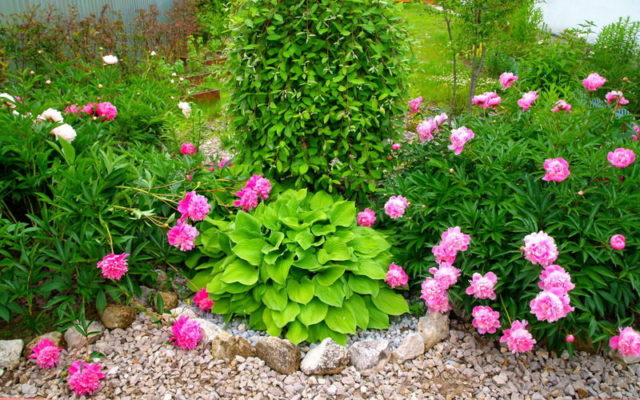
Since peonies are spreading, you should not plant the same neighbors, they will interfere with each other
The Alexander Fleming variety can be grown on balconies, loggias in flowerpots. You just need to create the necessary conditions and follow agricultural cultivation techniques.
Reproduction methods
Like other peonies, the Alexander Fleming species can be propagated in different ways:
- cuttings;
Planting material is cut from healthy bushes; there should be at least two buds on a cutting about 15 cm long
- by seeds - this method is not entirely suitable for amateurs, since propagation is not only lengthy, but also complex;
The seed option does not always guarantee the presence of varietal properties of the crop
- dividing the bush.
One of the most acceptable methods of propagation, but you need to take plantings older than five years as mother plants.
Landing rules
In order for Alexander Fleming peonies to develop on the site during the growing season and delight flower growers, you need to know not only the planting rules, but also the time. In addition, choose the optimal location.
Planting site, soil
If you decide on the right area immediately before planting, then further cultivation will not cause much trouble:
- For the Alexander Fleming peony, you need to select a well-lit place. It is not advisable to plant bushes next to buildings, as they create shade.
- The soil should not be swampy or with stagnant water. Excessive moisture leads to rotting of the root system.
- Before planting, sand, peat, and humus are added to the clay soil.
- If the first component predominates, then clay and peat should be added to the soil mixture.
- Peonies do not tolerate acidic soils. To neutralize, you can add wood ash to the root zone.
As for planting time, it is better to plan it for the fall: at the end of August or early September. This will allow the plant to begin to develop early in the spring.
Preparation of planting material
In order for the Alexander Fleming peony to take root successfully and grow normally, you need to prepare planting material:
- Trim the roots of seedlings that show signs of rot or damage.
- Place in a weak solution of potassium permanganate for 10 minutes.
- Disinfect for 20 minutes in a solution of copper sulfate (add 100 g of the drug per 10 liters of water).
- Sprinkle charcoal on the cuts so that they not only dry faster, but also for disinfection.
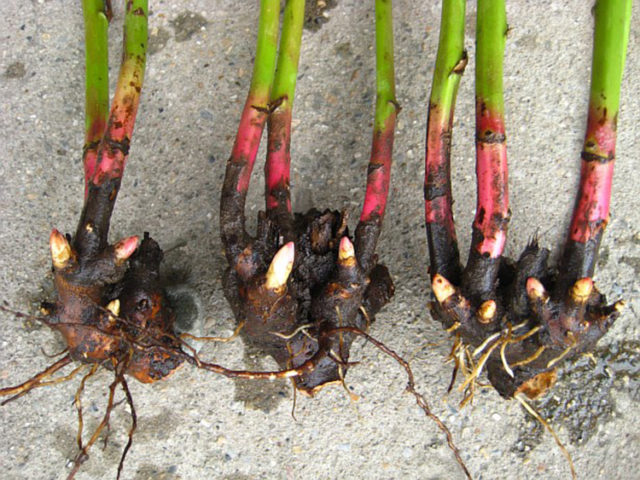
The more growth buds on the seedlings, the more powerful the bushes will be
There is another way to prepare Alexander Fleming peonies for planting. For rooting to be successful, you need to place the rhizome in a clay mash. It consists of:
- 50 g of copper sulfate;
- 2 tablets of heteroauxin;
- 300 g wood ash;
- clay.
All ingredients are mixed in 10 liters of water to a paste and the roots of Alexander Fleming peonies are lowered for a third of an hour. Then they are dried in the open air, and they can be planted.
Landing algorithm
A properly planted Alexander Fleming herbaceous peony will quickly take root and begin to develop. It will grow in one place for several years. The pit is prepared in advance so that the soil has time to settle.
Landing rules:
- First you need to dig a hole measuring 60x60x60.
- Fill the bottom with drainage made of coarse sand, crushed stone or broken brick, layer - from 20 to 25 cm.
- Mix compost, humus, a little lime, 200 g of superphosphate, 150 g of potassium sulfate and wood ash.
- Cover the nutrient mixture with a layer of 20 cm, and top with soil and compost.
- Place the Alexander Fleming peony seedling in the center, straighten the roots, and sprinkle with soil. The flower bud should be buried 3-5 cm.
In order not to make a mistake with the planting depth, you can put a stick on the hole as a guide
- Compact the soil and fill it well with water.
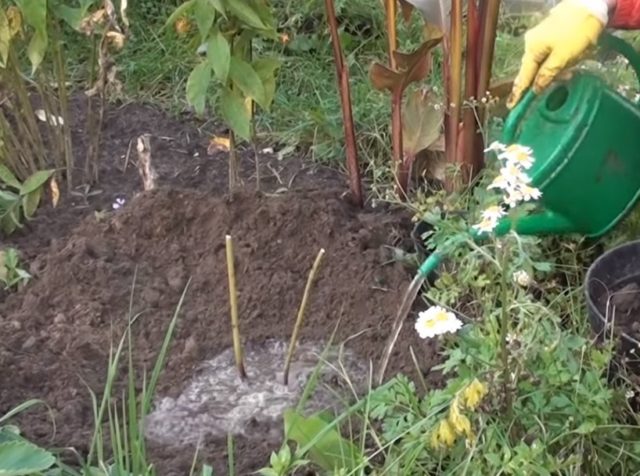
There is another way to plant - in the mud
Fill the hole 2/3 full with soil and add plenty of water. Then, without waiting for it to be absorbed, place the peony in the liquid mass and add soil.
Aftercare
Further care of the plantings, including the Alexander Fleming species, consists of traditional measures. Even a novice gardener can handle it.
Watering
Bushes of the Alexander Fleming variety should be watered moderately, no more than once every seven days. An adult plant needs two buckets of water. When budding begins, additional irrigation will be required to keep the soil from drying out.
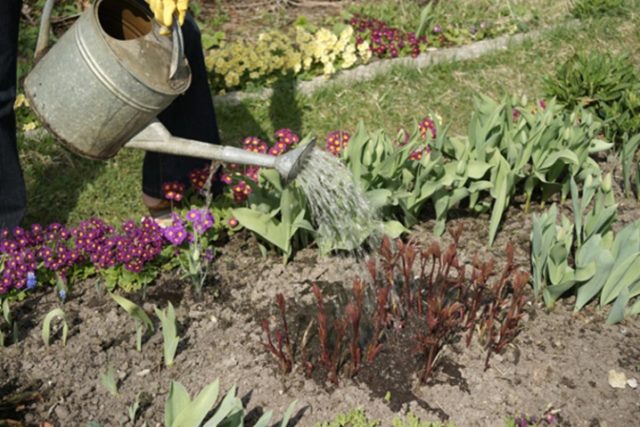
The root system reacts negatively to excess water and may rot
Mulching and loosening the soil around the bush is also necessary to retain moisture and prevent weed growth
Top dressing
Doc Alexander Fleming's peony needs to be fed three times:
- early spring the snow has not yet melted;
- during the formation of buds;
- after flowering ends.
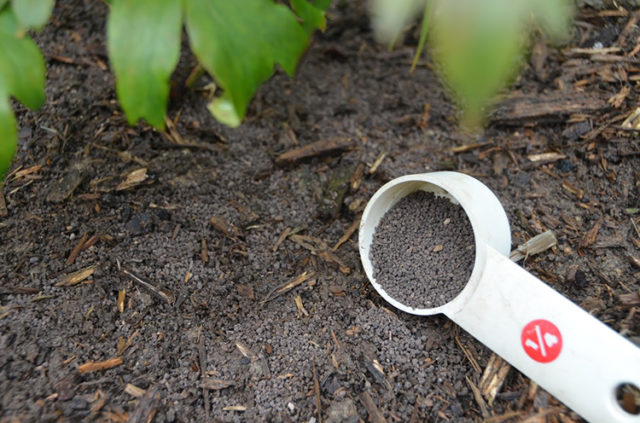
Organic and mineral fertilizers are suitable for feeding
Trimming
Most often, Alexander Fleming peonies require sanitary pruning when it is necessary to remove damaged or diseased shoots and leaves. During the growing season, faded buds are removed so that the crop does not lose its decorative effect.
Preparing for winter
After flowering ends in early September, the bushes are fed. The above-ground part is cut off, leaving low stumps of about 2-3 cm when the first frosts begin. During this time, the plant will have time to release nutrients to the rhizome.
The root zone is mulched to create a protective cushion from frost. Even in regions with a sharply continental climate, such shelter for mature bushes will be sufficient. Young plants can be covered with non-woven material or spruce branches.
Pests and diseases
Like any garden plants, Alexander Fleming peonies can get sick and be attacked by pests.
Diseases | Pests |
Gray rot | Aphid |
Rust | Bronzovki |
Powdery mildew |
|
Sheet mosaic |
|
To combat, use special drugs or folk remedies.
Conclusion
Peony Alexander Fleming is an excellent option for decorating garden plots of any size. That is why the variety with pink or pink-purple buds is valued by landscape designers.
